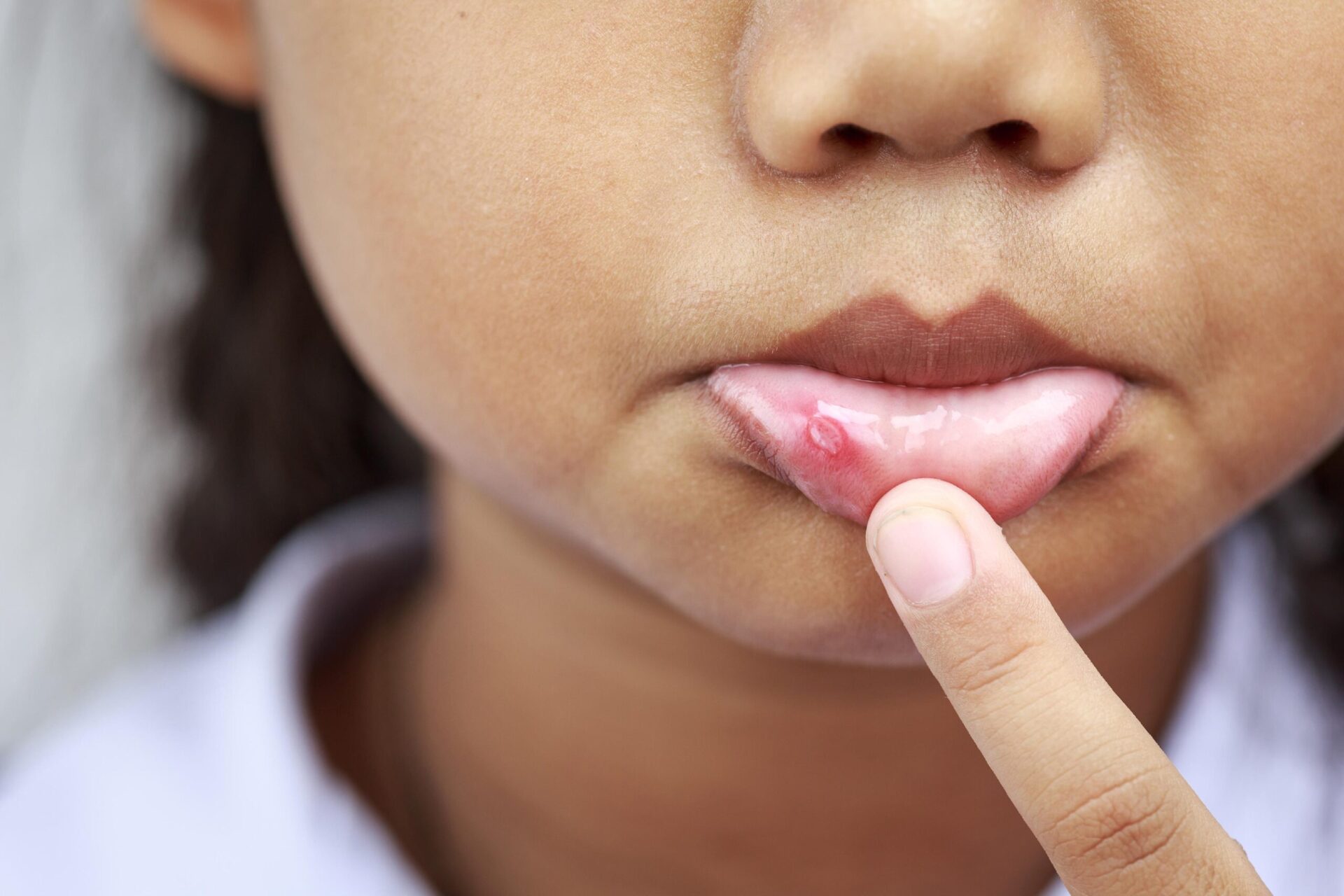Canker Sores:
Canker sores develop on the soft tissues inside the mouth, such as the lips or Gums. These minor annoyances are known to make eating, speaking, and taking care of one’s mouth difficult.
The majority of sores will go away in a week or two, but during this period they can be very uncomfortable and painful. While some topical ointments could make you feel less uncomfortable and cut the length of your canker sore, this isn’t always the case for everyone and in every circumstance.
Causes of Canker sore:
It can be difficult to determine the exact cause of a canker sore. In simple cases, the most common causes are stress or minor mouth injuries. Here are some more possible triggers:
- Fruits and vegetables that are acidic
- Changes in hormones
- Autoimmune disorders
- Stress
- Medications
- Deficiencies in vitamins or minerals.
- A sharp toothbrush, a sharp tooth surface, a dental appliance, or an ill-fitting denture can all cause canker sores.
- Recurrent sores are frequently attributed to a lack of B12, zinc, iron, or folic acid, but underlying health issues may also be to blame.
- Patients with immune system diseases such as AIDS, lupus, and inflammatory bowel disease may develop complex sores. If you have recurring sores, tell your dental hygienist.
Get Rid of Canker Sores Quickly:
There are numerous home remedies and over-the-counter medications that can be used to aid in the healing process.
A persistent case of canker sores can also be treated with stronger prescription medication from your dentist or doctor.
- Ice: Ice is an excellent way to reduce inflammation, particularly for lip sores. To avoid frostbite, wrap ice in a cloth or towel. The cold will also help to relieve pain.
- Antibacterial mouthwash:
A medicated rinse may be the best treatment for persistent or severe sores. Mouthwashes containing dexamethasone are excellent for treating multiple sores. Dexamethasone is a cortisone-like medication used to treat inflamed areas.
Tetracycline mouthwashes have been shown in studies to reduce pain in as little as 24 hours and cut healing time in half. Antibiotic or corticosteroid mouthwashes must be prescribed, so consult your dentist or doctor.
- Use saltwater to gargle: combine 1/4 to 1/2 teaspoon of salt with warm water. Swish water around in your mouth for 20-30 seconds before spitting it out.
- Oral gels to relieve the pain of canker sores.
- If your sore does not heal after trying all of these remedies, it is time to see a dentist. If a sore lasts more than 14 days or even longer, if it appears to worsen, if an unusual growth in size is observed, if you notice frequent outbreaks of sores, if they become extremely painful over time, or if they are accompanied by a high fever, contact your dentist.
- Early evaluation and detection can assist you in alleviating your discomfort and pain. So don’t wait any longer and get rid of your sore.
How to Avoid Aggravating a Canker Sore?
- Keep your toothbrush away from it.
- Avoid foods that will aggravate your sore, such as crunchy, dry, spicy, or acidic foods. Citrus and tomatoes, in particular.
- Apply wax to brackets adjacent to the sore if you have braces to reduce rubbing. If your braces or dentures continue to cause discomfort and sores, your dentist may be able to make the necessary adjustments.
- Avoid toothpaste containing sodium lauryl sulphate. You may be allergic to this ingredient.
- Avoid stress, as it makes easy for sores to form and irritate your mouth.
- If you are sick, the chances are high for sores to form.




